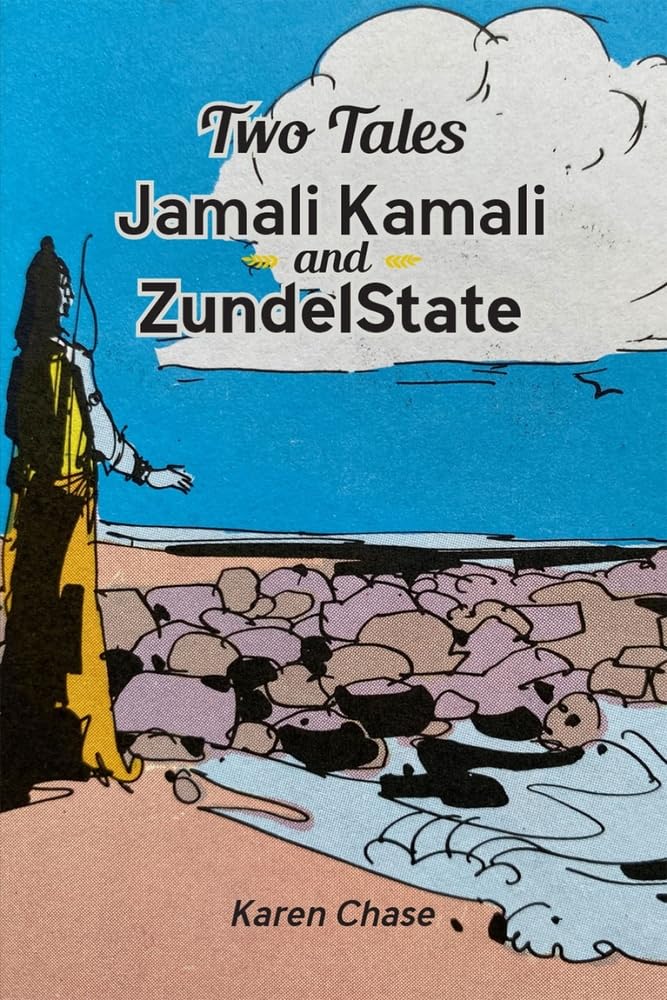Two Tales: Jamali Kamali and ZundelState
Author: Karen Chase
Publisher: Guernica Editions
Rating: 4.5/5
Karen Chase’s Two Tales: Jamali Kamali and ZundelState is a haunting, lyrical meditation on love, beauty, and resistance, set against backdrops of fear and oppression. The writing style throughout both tales is lush and evocative, blending poetry and narrative seamlessly. Chase crafts verses that pulse with longing, desire, and rebellion, giving voice to characters whose very existence defies the forces that seek to silence them.
Jamali Kamali tells the imagined story of Jamali and Kamali, two men buried together in 16th-century Delhi, whose love survives through oral tradition but remains undocumented by history. Chase’s poetic rendering is intimate and sensual, filled with imagery that celebrates both the physical and the transcendent. The verses shimmer with a delicate tension between devotion and despair, as Jamali’s voice reaches across time and distance toward Kamali:
“On the map of your body, there is nowhere I would not travel.”
Here, the body becomes a sacred geography, a site of exploration and worship, even as the lovers are torn apart by external forces and inner conflict.
ZundelState, in contrast, projects us a thousand years into a dystopian future, where history is banned and dreaming itself has become a lost art. In this sterile, controlled world, Joe—a secret lover of forbidden histories—and Marianna, a loyal worker in the State’s HistoryShit Apparatchik Division, find themselves improbably drawn to one another. Their relationship becomes an act of quiet defiance, an insistence on remembering, desiring, and imagining despite the State’s suffocating rules. The narrative is playful yet profound, with lines that carry unsettling resonance:
“Everything that ever happened is still happening.”
and
“I’ll let you be in my dreams if I can be in yours.”
These quotes capture the book’s meditation on time as cyclical, memory as resistance, and love as a form of insurgency.
Both tales explore love not as mere romance, but as a radical force—a means of survival, connection, and rebellion in worlds that would erase or suppress such bonds. The characters are outsiders, separated by centuries, yet linked by their yearning to carve out spaces of intimacy and meaning in hostile environments. Their arcs are subtle yet powerful, charting movements from longing to resolve, secrecy to fragile openness.
If there is a slight imperfection, it lies in how some secondary figures—particularly in ZundelState—appear briefly and tantalizingly, only to recede without full development. But perhaps this too reflects the fractured, disorienting nature of the world Chase imagines, where fragments of history and identity must be pieced together from ruins.
Ultimately, Two Tales: Jamali Kamali and ZundelState is a profound and beautifully crafted work that invites readers to reflect on the enduring power of love, the fragility of memory, and the necessity of imagining otherwise. Chase’s intention—to honour the marginalized, to give voice to the silenced, and to explore beauty in the midst of fear—is realized with grace, nuance, and quiet courage. It is a book to savour slowly, and to return to with fresh wonder.
Find this book here: India
Catch us on YouTube as we delve into the discussion about Karen’s creative vortex and her passion for this book.

